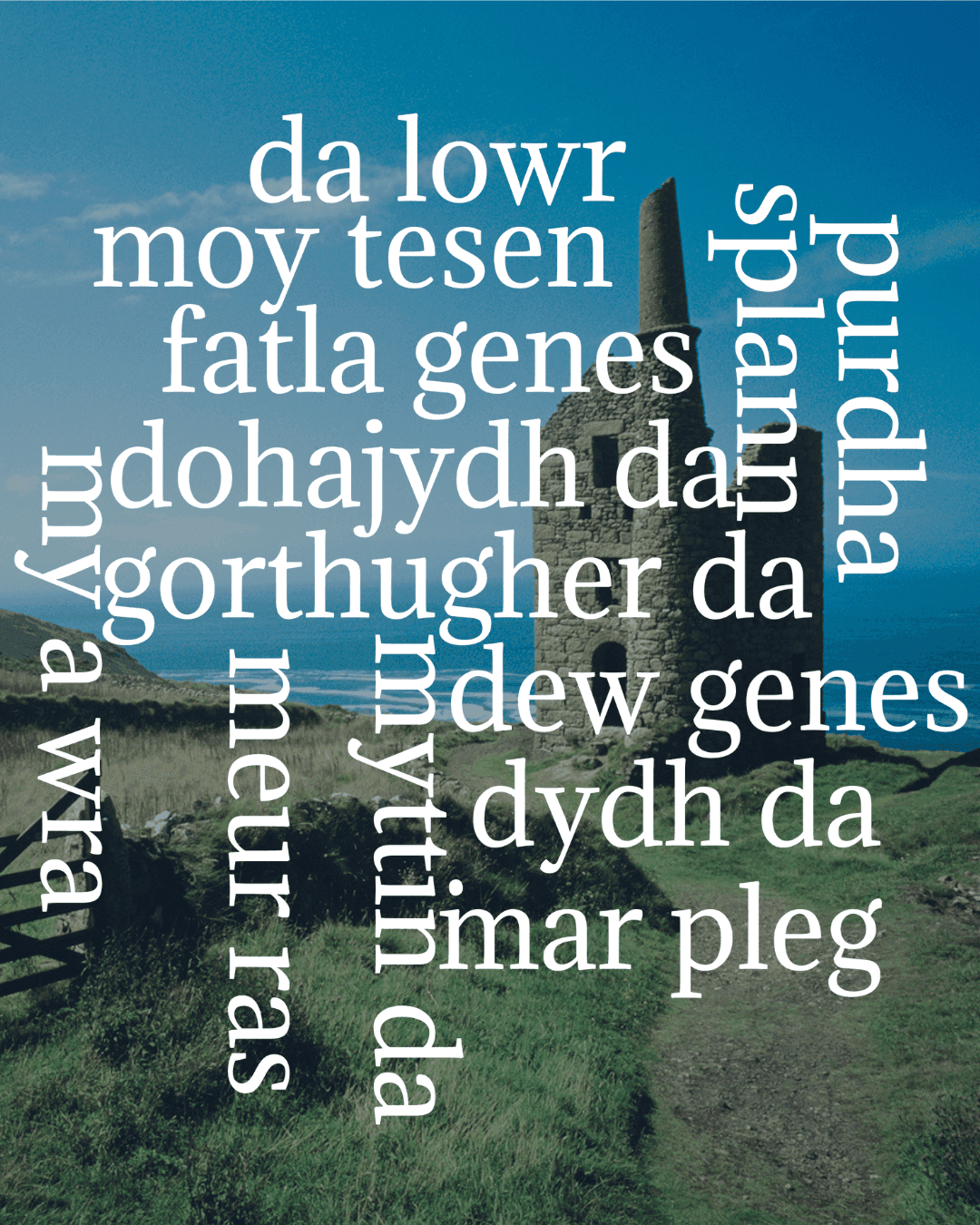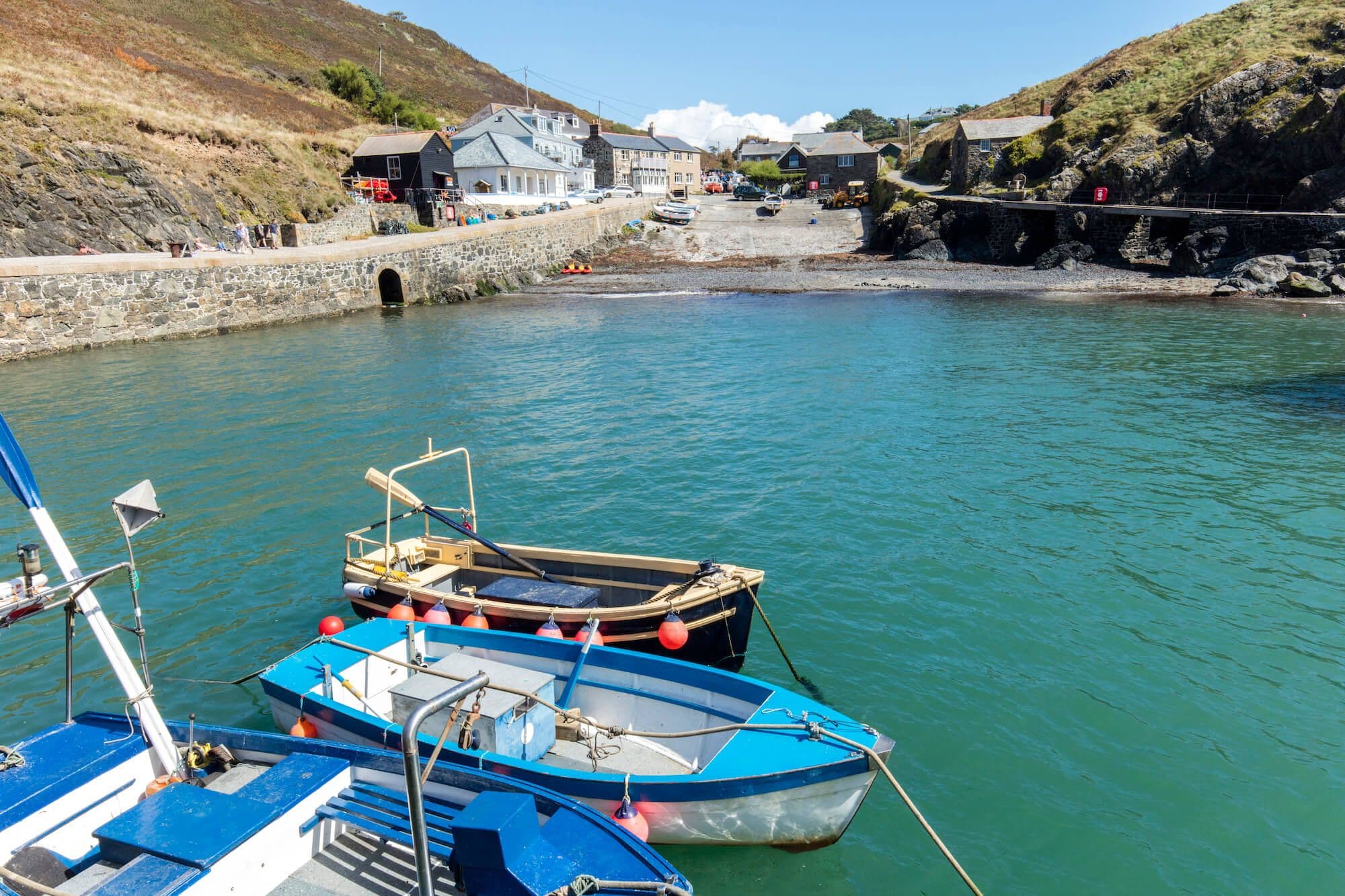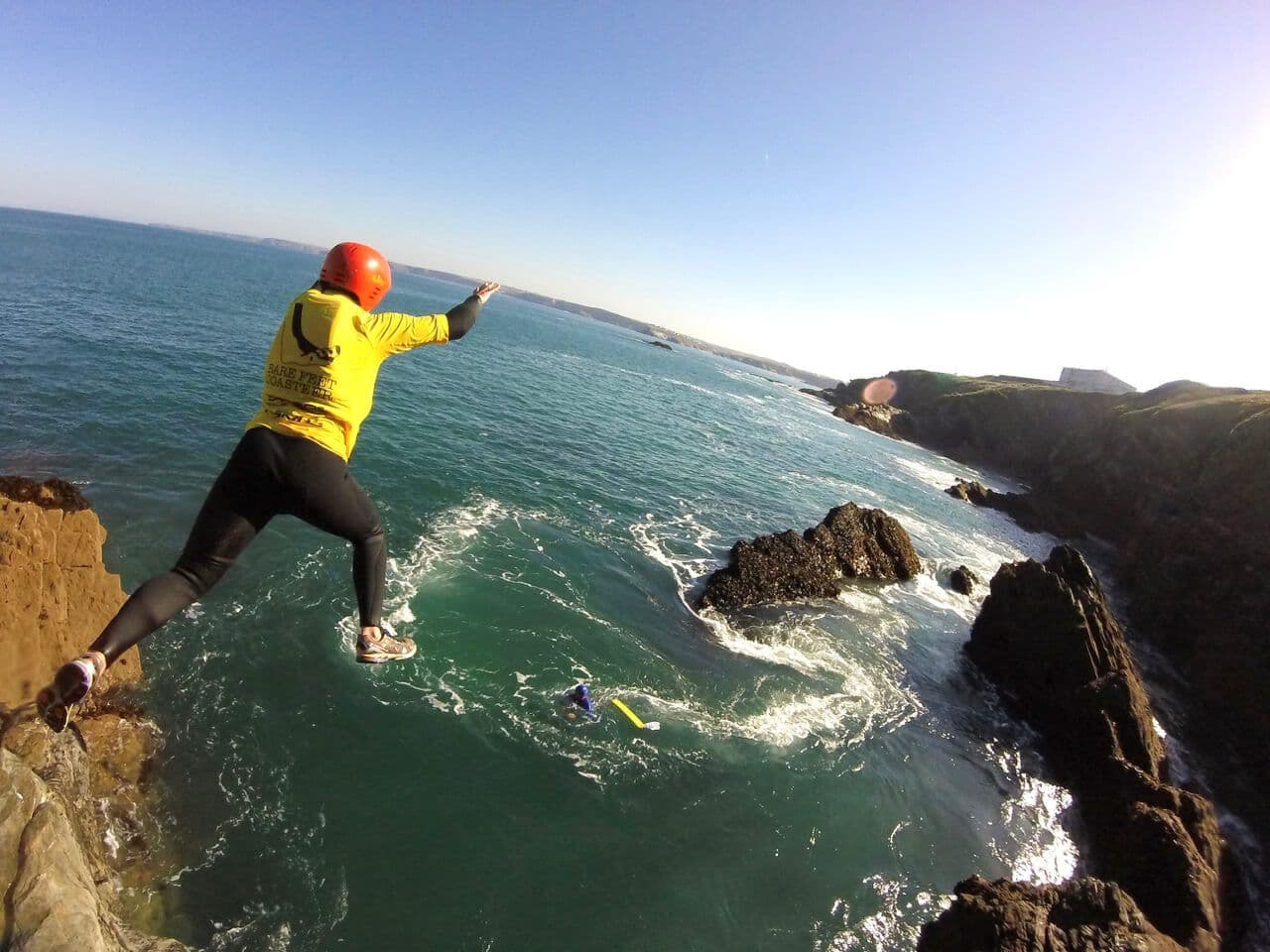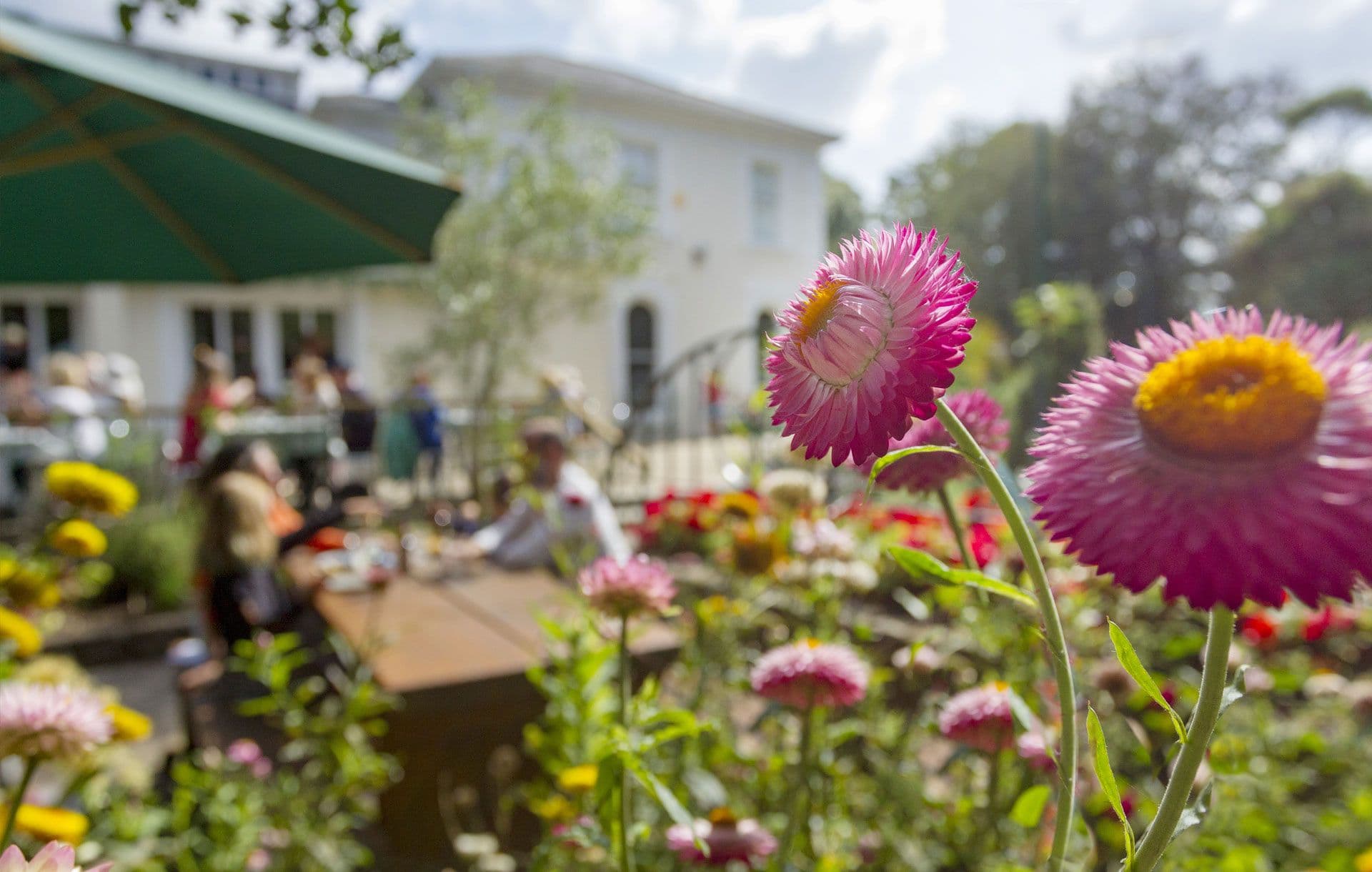The Cornish Language
Once spoken by the ancient Celts who inhabited Cornwall, historically, Cornish emerged as a distinct language, closely related to Welsh and Breton, and played a vital role in shaping the identity of the Cornish people. Cornish thrived as a language of everyday communication, literature, and cultural expression throughout the medieval period.
However, with the decline of the Cornish mining industry in the 19th century and the increasing dominance of English, the language faced significant challenges. By the end of the 19th century, it was considered extinct as a spoken language, surviving only in written records and fragments of literature.
In recent decades, concerted efforts by linguists, historians, and passionate locals have sparked a resurgence of interest in Cornish culture, language, and identity. This revival movement is rooted in a deep sense of pride and connection to Cornwall's rich heritage, as well as a desire to reclaim and preserve a vital aspect of Cornish identity.
Today it is estimated that around 3,000 people have some degree of proficiency in the language and the number of learners continues to increase. In efforts to strengthen its revival, Cornish is often taught in schools and Cornish language events work to foster community engagement with the language while celebrating Cornwall’s cultural heritage. You can even find Cornish language radio stations alongside independent films and children's books – all showing the Cornish language is here to stay.
If you have ever wanted to learn Cornish, there's no better time than the present. With St Piran’s Day right around the corner, you can impress your friends and family with your newfound Cornish skills.
Start your Cornish journey off right with these key words and phrases:
Hello - Dydh da
Goodbye - Dyw genes
Good morning - Myttin da
Good afternoon - Dohajydh da
Good evening - Gorthugher da
Please - Mar pleg
Thank you - Meur ras
Excuse me - Gav dhymm
Sorry - Drog yw genev
Cheers - yeghes da
Pasty – Hogen
Beach – Treth
Castle – Kastell/Dinas
If the language feels a bit daunting, try out one of these Cornish phrases instead and we can guarantee you'll fit right in amongst the locals.
Dreckly – “Whenever I get around to it, which could be soon, eventually, or when pigs fly.”
Ansom – Term of endearment for both men and women. If you’re lucky, you might even be called “Proper Ansom”.
Proper job – A task executed with such finesse and precision that Michelangelo would give a standing ovation.
Right on – Versatile term used as both a greeting, agreement and a great go-to when you’ve zoned out mid-conversation. Also an appropriate response to “proper job.”
Wasson – More enthusiastic way of asking “How are you?”
My lover – Affectionate term for strangers and friends alike. Don’t be taken aback if a stranger asks, “Aright, my lover?”
Stay connected
Find us on socials and stay connected with the Cornwall you love.




